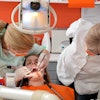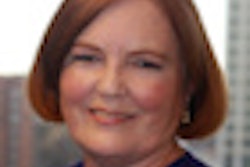
As part of its 2013 budget, the ADA is proposing to drastically cut services provided at its Chicago library, raise members' dues, and impose a special assessment. But members are balking at the library cutbacks, saying the library is a core service and an irreplaceable resource for research.
Projected ADA revenue for 2013 is $118.6 million, while pretax operating expenses are projected at $120.2 million, according to a July ADA News article about budget proposals.
To cover the shortfall, the Board of Trustees is calling for the elimination of walk-in services at the library, including loaning books and materials. The group is also proposing a $30 dues increase and a $50 per member special assessment for 2013 and 2014 for a capital improvement fund.
The ADA cited "financial pressures," including flat dues growth and changes made to employee pensions last year, for the proposed cutbacks, the ADA News reported.
"Library services would be narrowed in scope in 2013 to those services that are most used and most impactful," according to an ADA statement emailed to DrBicuspid.com. Less than 1% of its members used the library's services in 2012, according to the association.
"There is a growing trend from medical and other associations for online catalogs in place of hard-copy materials," the ADA explained, noting that other medical groups, including the American Medical Association, offer library use only for employees.
World-class professional resource
But the decision to severely curtail the Chicago library's services was criticized by many members, who say it will mean losing access to a research resource that has been invaluable for 85 years.
"I've been going there for more than 30 years and probably use it about 10 times a year," Chicago dentist Spencer Bloom, DDS, told DrBicuspid.com. "It is an invaluable and irreplaceable, world-class professional resource. Dismantling it or transforming it is not acceptable."
“It's disturbing because it's a great resource that I've used many times, and it's been so helpful.”
The library has also been a resource for the U.S. Centers for Disease Control and Prevention (CDC) and foreign dental organizations such as the British Dental Association and the Australian government, Dr. Bloom said.
Another longtime library user, Neal Nealis, DDS, a Chicago general practitioner, echoed Dr. Bloom's sentiments.
"I've been using it 33 for years," he told DrBicuspid.com. "It's disturbing because it's a great resource that I've used many times, and it's been so helpful. I've probably read more than a dozen textbooks cover to cover that I've checked out."
Dr. Nealis said he often uses the library to check out expensive restorative textbooks he wouldn't otherwise read. "I get a lot of information from books that aren't worth owning, but they're worth reading and I do learn something," he said.
He also uses the facility to do research for presentations and educational materials that he writes for dentists. "I use it for their books, their journals, their search engines, for research papers," he said.
Some unique publications
Another ADA member who decries the planned library cutbacks is Lynn Carlisle, DDS, a retired Ft. Collins, CO, dentist who publishes a dental website.
"If implemented, this will be an enormous, irretrievable loss to dentistry," Dr. Carlisle wrote on his website, In a Spirit of Caring.
The library provides a "core service" for ADA members, he told DrBicuspid.com. "It's really the only repository of the history, legacy, and knowledge of dentistry," Dr. Carlisle pointed out. "If they close this down, they'll lose that; it'll just be a museum but dentists won't have access to it."
He also finds it very useful to locate articles and books, especially old and arcane material.
"If you're researching an article, they're very good about finding it," he said. "I was looking for a very obscure book written in 1930s, and they had it so I could check it out to reference it in my article."
Another example he cited was his search for material by preventive dentistry advocate Bob Barkley, DDS. Due to a Barkley family dispute over copyright, the ADA library is the only place it can be found, Dr. Carlisle explained.
Dental school libraries don't come close to what the ADA library offers, he said.
"This just flabbergasts me," Dr. Carlisle said of the cutbacks. "They need to examine their mission statement. To lose this prime, core service is just idiotic."
A final decision will be made by the ADA's House of Delegates during an October meeting in San Francisco.
A changing landscape
The ADA uses a software program for budget planning that is also used by the U.S. Department of Defense, according to the budget story.
Decisions about the library shouldn't be left up to a software program, Dr. Bloom said. "Software doesn't know what a library is," he observed.
"Nobody evaluates a library by its bottom line," Dr. Bloom asserted. "No library is there for generating money."
The ADA said it is "determining what digital services we may be able to offer or enhance to meet growing technological preferences while serving a greater geographic region of our members."
The budget proposals cited a "need to constantly review the calculated value of programs and membership offerings," according to the July ADA News article. "It also sets forth a course for our association to maintain relevance to our members and vitality to the profession and the public."
Dr. Bloom and others are encouraging members to contact their ADA delegates to ask the ADA to maintain library services.
"If we don't speak up, it's going to be a done deal," he said. "We have a world-class professional library that is being dismantled; it's just a shame."



















